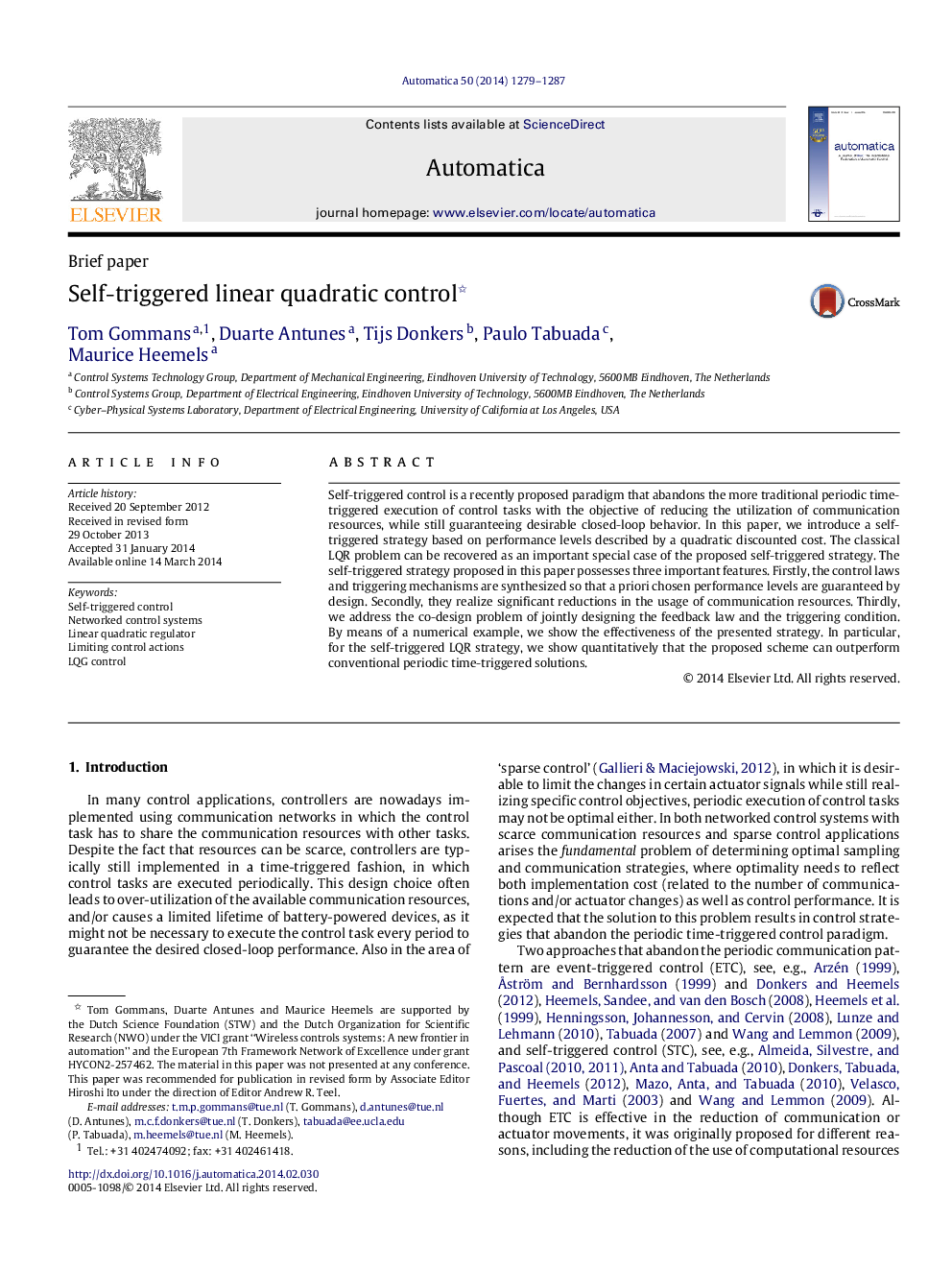| Article ID | Journal | Published Year | Pages | File Type |
|---|---|---|---|---|
| 696071 | Automatica | 2014 | 9 Pages |
Self-triggered control is a recently proposed paradigm that abandons the more traditional periodic time-triggered execution of control tasks with the objective of reducing the utilization of communication resources, while still guaranteeing desirable closed-loop behavior. In this paper, we introduce a self-triggered strategy based on performance levels described by a quadratic discounted cost. The classical LQR problem can be recovered as an important special case of the proposed self-triggered strategy. The self-triggered strategy proposed in this paper possesses three important features. Firstly, the control laws and triggering mechanisms are synthesized so that a priori chosen performance levels are guaranteed by design. Secondly, they realize significant reductions in the usage of communication resources. Thirdly, we address the co-design problem of jointly designing the feedback law and the triggering condition. By means of a numerical example, we show the effectiveness of the presented strategy. In particular, for the self-triggered LQR strategy, we show quantitatively that the proposed scheme can outperform conventional periodic time-triggered solutions.
